In order to maintain the momentum in Somalia’s transition, policy space needs to be opened up to advance the country’s state-building process.
Having reached a milestone with the installation of the Federal Government of Somalia (FGS) in September 2012, hope and optimism for a Somali future marked by peace and stability ran high. Bolstered by important military gains the African Union Mission in Somalia (AMISOM) had scored against al-Shabab, a jihadist group, since 2011, Somali President Hassan Sheikh Mohamud devised policy options that were both coherent and pragmatic, thus deepening confidence among international donors.
In January 2013, the US administration recognized the new Somali leadership, with other foreign governments and international organizations following suit. When the outgoing European Union High Representative for Foreign Affairs and Security Policy Catherine Ashton declared that “Somalia is no longer a failed state,” international donors echoed her optimism by pledging billions of dollars for the reconstruction of the country during aid conferences in London, Yokohama and Brussels between May and September 2013.
Yet just over two years after having taken office, the outlook appears bleak for Mohamud. Al-Shabab is far from defeated and continues to carry out regular attacks; the process of writing a new, permanent constitution has reached a deadlock; and the federalism process has proven to be a source of conflict. Violence surrounding the emergence of the Interim Jubba Administration (IJA) in May 2013 was replicated in Baidoa in March 2014, when competing factions tried to establish federal member states in southern Somalia.
Moreover, as had been the case during the transitional era, corruption continues unabated, and political infighting has weakened the government. After Prime Minister Abdi Farah Shirdon lost a vote of confidence in parliament in December 2013, President Mohamud had to fight for his own political survival when over 100 legislators demanded his resignation in May 2014. Consequently, donor confidence has been dented.
Against this backdrop, there seems to be a real danger that Somalia will fail again. Although some progress has certainly been made during the tenure of Mohamud, his government is a long way from standing on its own feet. In security, economic and political terms, the government appears to be as dependent on its multiple international partners as was the case for the preceding transitional federal governments.
Yet just over two years after having taken office, the outlook appears bleak for Mohamud. Al-Shabab is far from defeated and continues to carry out regular attacks…
What is more, some of the progress made in the political sphere may have serious repercussions for the development of the state. While the FGS has undoubtedly advanced Somalia’s federal agenda, the ad-hoc nature of this process risks contributing to continued fragility, deepened fragmentation and the reinvigoration of al-Shabab. These challenges, while frustrating, are hardly unusual in the context of state-building, which has historically proven to be a conflict-prone and drawn-out process.
A Rethink is Needed
For these reasons, neither Somali, nor international policymakers should resign themselves to failure. Yet rather than proceeding with business as usual, they should scrutinize and rethink their past and current approaches to state-building. Casting a critical eye over more accomplished state-building endeavors in the region is helpful in shedding light on the broad range of possible alternatives.
In this context, it is useful to refer to the case of Somaliland, long praised by international observers for its remarkable state-building effort. While Somaliland is a complicated example — it is neither an outright “success story,” nor does it “teach lessons” that are readily applicable to Somalia — it raises some important questions for Somali policymakers and their international counterparts to consider.
These questions range from whether to prioritize constitution-writing and democratization in state-building endeavors, to the elite’s need for a “political budget,” to the balance that must be struck between bottom-up and top-down approaches. Definitive answers to these questions are hard to come by, but the Somaliland case conveys a clear message: There is more than one path that leads to Rome. Consequently, international policymakers and their local partners in Somalia might benefit from taking a closer look at Somaliland’s state-building trajectory, which followed an unconventional path compared with approaches in Somalia and elsewhere.
A report by this author, published by the Center for Strategic and International Studies, traces Somaliland’s trajectory and juxtaposes it with the one presently envisioned for Somalia, arguing that there are a broad range of possible state-building avenues to follow. While Somalia’s state-building framework — the European Union- and Somalia-brokered Somali Compact — prioritizes the passage of a permanent constitution, the establishment of a federal governance system and the holding of popular elections, Somaliland followed a different path, at least during the first decade after its unilateral declaration of independence in 1991.
By proposing that state-building can follow various pathways, this study opens up much needed policy space and encourages Somalis and their international partners to think more flexibly and creatively about the way ahead. In concrete terms, Somali stakeholders and their international counterparts should consider prioritizing the creation and development of livelihoods at the “bottom” over legalistic and procedural aspects of state-building at the “top.” Moreover, the report suggests that greater efforts must be made to enhance social cohesion and national unity, which would not only boost Somalia’s state-building efforts, but would also address the grievances that provide al-Shabab with its recruitment message.
State-building is an inherently conflictive, incrementally evolving, haphazard process, requiring tough choices to be made, setbacks to be accommodated and risks to be taken. If Somalia is to find its own answers to some of the key state-building conundrums Somaliland poses, its leaders need a flexible attitude and a good dose of inspiration. While the “New Deal” framework for aid effectiveness in fragile states, which Somalia embraced with the Somali Compact, is designed to provide Somalia’s political elite with additional policy space, taking a closer look at Somaliland’s state-building trajectory may prove inspirational.
The views expressed in this article are the author’s own and do not necessarily reflect Fair Observer’s editorial policy.
Support Fair Observer
We rely on your support for our independence, diversity and quality.
For more than 10 years, Fair Observer has been free, fair and independent. No billionaire owns us, no advertisers control us. We are a reader-supported nonprofit. Unlike many other publications, we keep our content free for readers regardless of where they live or whether they can afford to pay. We have no paywalls and no ads.
In the post-truth era of fake news, echo chambers and filter bubbles, we publish a plurality of perspectives from around the world. Anyone can publish with us, but everyone goes through a rigorous editorial process. So, you get fact-checked, well-reasoned content instead of noise.
We publish 2,500+ voices from 90+ countries. We also conduct education and training programs
on subjects ranging from digital media and journalism to writing and critical thinking. This
doesn’t come cheap. Servers, editors, trainers and web developers cost
money.
Please consider supporting us on a regular basis as a recurring donor or a
sustaining member.
Will you support FO’s journalism?
We rely on your support for our independence, diversity and quality.




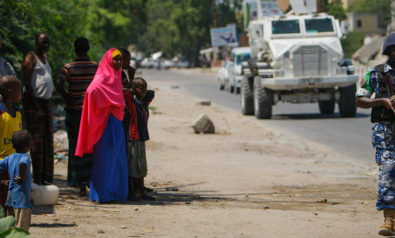
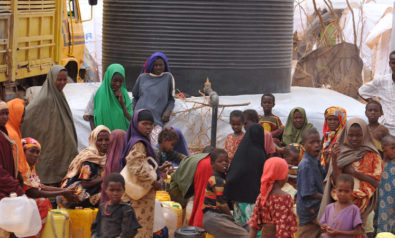
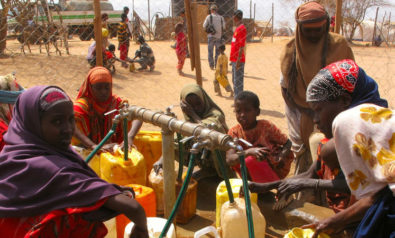

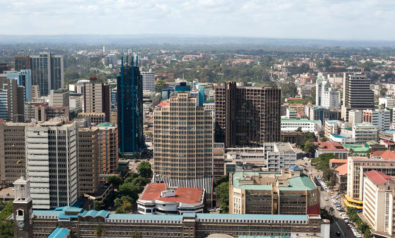
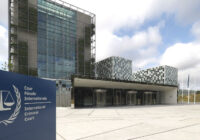
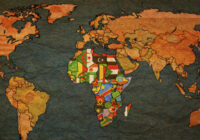


Comment